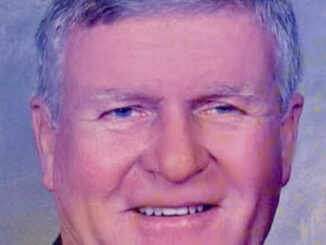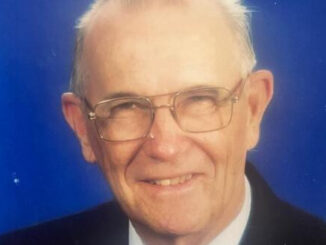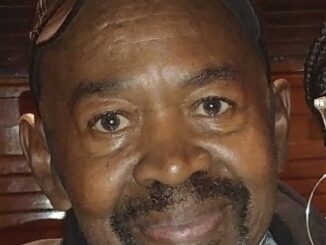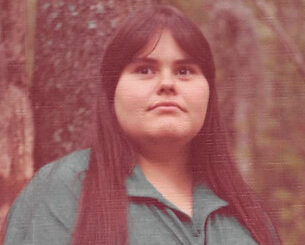
Imagine if you adopted an abused puppy from your local animal shelter.
You feed the puppy, and rebuild its health. You teach the puppy better ways of living – a warm, safe bed, flea treatments, vaccinations. You train the puppy to interact with other dogs and people. You gain the puppy’s trust.
Then you chain the puppy to a bridge on a country road, within sight of a dogfighting pit, drop the puppy’s food and bed off with the dogfighter, and drive away.
Now change that puppy to a nation, specifically Afghanistan.
Sept. 11, 2001 was nearly 20 years ago; not quite ten years later, U.S. Special Forces operatives killed Osama bin Laden, who planned the attacks and so many other acts of war against the United States. In the meantime, our country led a force that beat the Taliban almost into the ground. It took a lot of American blood, sweat and treasure, but as long as Afghanistan was stable, there was one less terrorist stronghold in the world.
We as Americans had no business being nation builders, but to start, then stop due to partisan politics is the same as chaining several million puppies to an isolated bridge in the hot summer sun.
Those who still hate Donald Trump are quick to point out that he planned to withdraw American forces this year. They fail to point out that the withdrawal was conditional and incremental. He spoke directly to the Taliban leader, reminding him that if the agreement was broken on Trump’s watch, the first bombs would fall on the Imam’s hometown. Goals were made and agreed to by everyone involved, including representatives of the tremendously weakened Taliban.
Trump made a deal that seemed impossible. Imagine someone getting a group of Baptists, Presbyterian USA members, Holiness pastors, Catholics and Mormons to agree, and you’ll have a better idea of what he faced. Except in the above examples, it’s unlikely each representative would be carrying an AK-47 to the meeting.
Then along came the new administration, which was intent on destroying everything created by the previous president, out of a simple, blind, politically-driven hatred. Throwing the baby out with the bathwater isn’t enough.
Many of the people of Afghanistan had embraced the latest versions of things they had known and loved in better times, before the Taliban took over and decided a woman’s lower eyelid was too sensual for a man to see. Girls and women went back to school, two generations after when education was something beyond counting children. Many Afghans clung to their traditions and heritage, but eschewed the sadistic hatred of the radical imams. They began to take pride in their country as well as their faith, and the different sects began to work together to bring their country back to at least the last quarter of the 20th century.
Then Biden decided to accelerate things; apparently not content with a Sept. 11 departure, which was a slap in the face to all Americans, he ordered things sped up. It went from an orderly, planned drawdown with rules for all sides to follow to a pell-mell bugout.
As early as four months ago, I talked to service members over there who were scavenging parts for vehicles from wrecks, and begging for food to be sent from home, because their support systems had been yanked out with a 48-hour notice and no provision for those left behind.
If you have ever read any of the poetry or folk tales of Southwest Asia – or the modern works such as Kara Kush – you quickly see that the folks in Afghanistan recognize and respect strength. That was demonstrated very well during the waning period of the Afghan conflict, when the sound of the rotors of an AH-64 attack helicopter, the sight of an A-10 attack plane, or simply seeing red lasers crossing a nighttime sky caused Taliban fighters to go home.
They were and are, by no means cowardly. This is a group of people who fought back against the Russians with spears and home-made firearms. When the Russians attacked them with helicopters, Afghans shot down the most heavily armored choppers in the world using muzzleloading elephant guns from the late 19th century.
These people rode horses into combat against tanks, armored personnel carriers and thousand-round-per-minute machine cannon – and they won.
The word cowardice isn’t in the Pashto or Duri dictionary, I don’t think. They respect courage and loyalty, two things which our country’s leadership no longer demonstrates to the world at large. The current administration is showing even less strength to the people we promised to help – people we delayed in allowing to emigrate, while allowing hundreds of thousands of other people to enter the country without asking.
Monday’s news was full of images of people falling off the wheel wells of aircraft leaving Kabul. What does it say about your country that you’re willing to die clinging to the side of a jet airplane rather than deal with the new political leaders?
I was a kid, but I remember watching on television as helicopters lifted off from the U.S. Embassy in Saigon, Vietnam, two years after we gave up and told the South Vietnamese to handle their own problems. I’ve talked to three different men who were there. One was a flight deck officer on an aircraft carrier where overloaded Hueys had to hover for a moment to drop their extra passengers, lest they be crushed under the landing skids. Another was a sailor who with his shipmates ran back and forth carrying little kids, women and old people from helicopters that were touching down, then taking off again.
And another was a man who flew one of those helicopters. You could see the tears grow in his eyes when he talked about the people whose arms reached toward his Huey, holding children and saying “Please, just one.” You heard his voice crack when he talked about the people who cried and thanked him, and the guilt he felt over those he couldn’t save, people our country had left to their own devices.
Now I see the sons and nephews of those who were forced to fight, but not allowed to win, going through something similar to that experienced a generation ago.
I have never been to Afghanistan, much less served there or anywhere. My nephew did, and there’s a chance his daughter will do so now. I have been honored to meet and in some cases become friends with some who fought there. The entire region has always fascinated me, because for millenia, whatever empire or country decides to fight there seems to defeat itself before the Afghans have a chance to do so.
Our country knew better, but went ahead and stayed anyway.
Those who died on the battlefields of Kandahar and Tora Bora and elsewhere, in operations called Anaconda and Bakersfield and others – those men and women didn’t die in vain. They died doing what American warriors do: they obeyed orders, and trusted in their leaders to do the right thing. Even if they didn’t understand, even if they were hurt and cold and bleeding and frightened, they rubbed some dirt in their wounds, wiped off the blood of their brothers and sisters, and carried on.
Our military didn’t fail.
Those in charge of our military, however, failed.
They failed every single Gold Star family, and every veteran who came home with fewer limbs than he took over there. They failed every single one of the 22 veterans who commit suicide every single day, a number I fear will grow. The bureaucrats and politicians and party hacks failed every single American who sent a Christmas card, a care package, or a child to fight in a war that Washington decided shouldn’t be won.
On top of that, they failed every single Afghan who made the mistake of trusting that the greatest country on earth would help their country become great too.
The politicians who failed have done nothing more than tie a puppy to a country bridge on a hot summer’s day, and walked away to let it die.
















